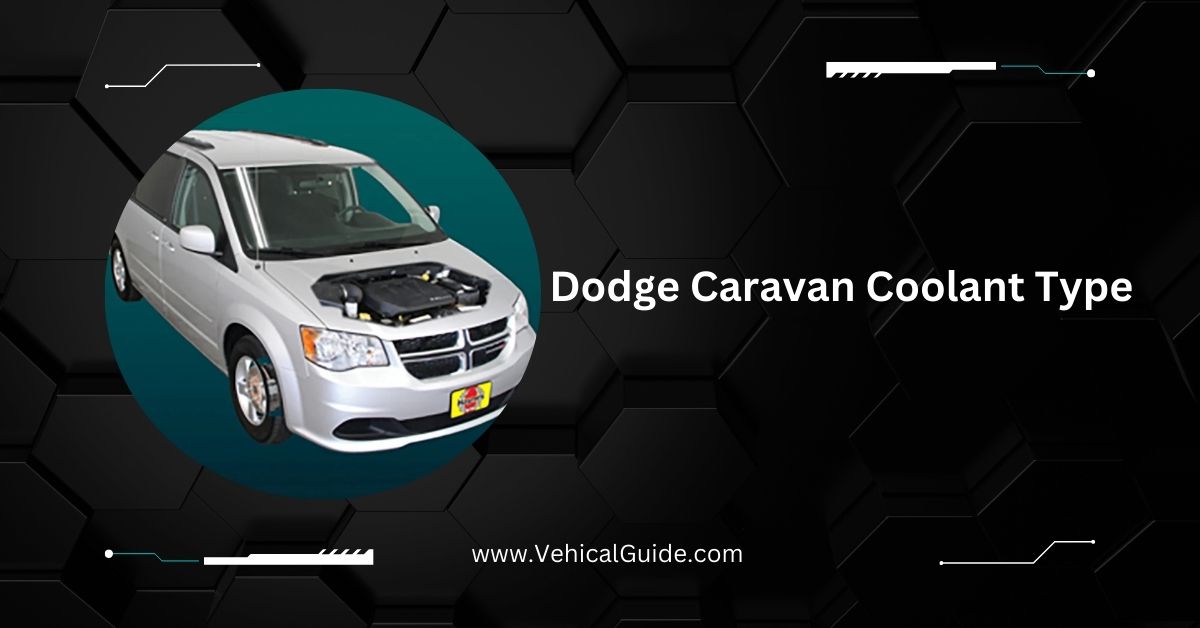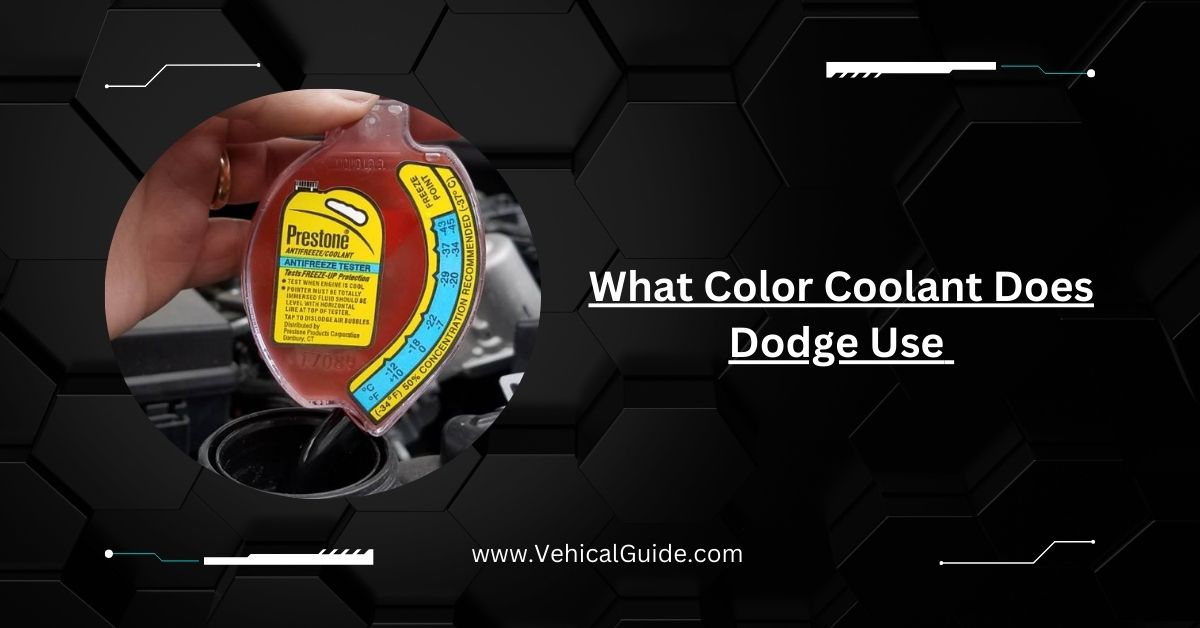Table of Contents
When I first had to deal with my Dodge Caravan’s coolant, I was confused about what type to use. After reading up on it, I learned that using the right ethylene glycol-based coolant is crucial for preventing engine problems.
This article explains the importance of using the right coolant in a Dodge Caravan. It stresses that coolant helps regulate engine temperature and prevents overheating. Regular checks and changes of coolant are necessary for engine health.
In this article, you’ll discover why using the right coolant is essential for keeping your Dodge Caravan running smoothly.
What type of coolant is recommended for a Dodge Caravan?
The recommended coolant for a Dodge Caravan is typically an ethylene glycol-based antifreeze. This type of coolant is effective in regulating engine temperature, protecting against freezing in cold weather, and preventing overheating when it’s hot.
It is essential to use a mixture that consists of approximately 50% coolant and 50% distilled water for optimal performance. Additionally, the coolant you select should meet Chrysler’s MS-9769 specification, which ensures compatibility with the materials in the engine and cooling system.
Can I use universal coolant in my Dodge Caravan – Ensure Smooth Driving!
Using universal coolant in your Dodge Caravan can be convenient but is not always the best choice. While many universal coolants are designed to be compatible with various vehicle models, it is essential to ensure that it specifically meets the Chrysler specifications required for your Caravan, particularly the MS-9769 standard.
Using a universal coolant that does not meet these specifications could lead to decreased engine performance or damage over time. Manufacturers design coolant for specific chemical properties, and mixing different brands or types can result in unwanted chemical reactions.
How often should I change the coolant in my Dodge Caravan?
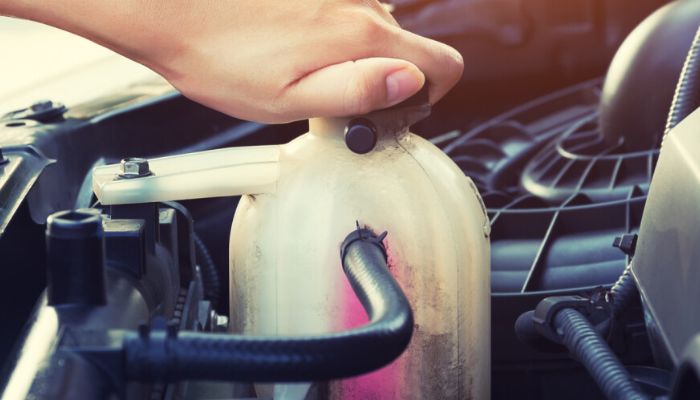
Changing the coolant in your Dodge Caravan is an essential part of routine vehicle maintenance. Generally, it’s recommended to change the coolant every 30,000 to 50,000 miles, but this can vary depending on the type of coolant used.
However, factors like driving habits, climate, and neglecting regular maintenance can affect this interval. It’s always best to consult your owner’s manual for specific recommendations tailored to your vehicle model.
How do I check the coolant level in my Dodge Caravan – Monitor Your Levels!
- Safety First: Before checking the coolant, make sure the engine is cool. Hot engines can cause burns if you open the cap.
- Locate the Coolant Reservoir: Open the hood of your Dodge Caravan and find the coolant reservoir. It is normally a transparent plastic container situated close to the radiator.
- Check the Fluid Level: Look at the markings on the side of the reservoir. There should be MIN and MAX lines.The coolant level must be positioned between these two markers.
- Inspect the Coolant Color: The coolant should be bright or clear. If it looks rusty, muddy, or has debris, it may need to be replaced.
- Add Coolant if Necessary: If the level is low, you can add the correct type of coolant. Check your owner’s manual for the right coolant specifications.
- Use Caution When Adding: Open the cap slowly, and be careful not to spill any coolant. Pour it in slowly until it reaches the “MAX” line.
- Check for Leaks: If you often find the coolant low, look for puddles or stains under the vehicle. Leaks can be a sign of a bigger problem.
- Regular Maintenance: You should check the coolant level regularly, especially before long trips. Keeping the coolant at the right level helps prevent engine overheating.
What happens if I mix different types or brands of coolant?
Mixing different types or brands of coolant can lead to several serious problems in your Dodge Caravan. Each type of coolant has a specific chemical formulation designed to provide optimal performance, and when you mix them.
it can create chemical reactions that form sludge or precipitate. This sludge can clog the cooling system, restricting the flow of coolant and decreasing its effectiveness in regulating your engine’s temperature.
Can I use water instead of coolant in my Dodge Caravan?
While it may seem practical to use water in your Dodge Caravan’s cooling system, it is not recommended as a long-term solution. Water alone lacks many of the essential properties found in coolant, such as anti-corrosive agents, anti-foaming properties, and the ability to prevent freezing.
Using water can lead to corrosion and rust inside your engine and cooling system, which can cause significant damage over time. In colder climates, plain water can freeze, leading to potential engine block damage and coolant lines bursting.
How do I flush the coolant system in a Dodge Caravan?
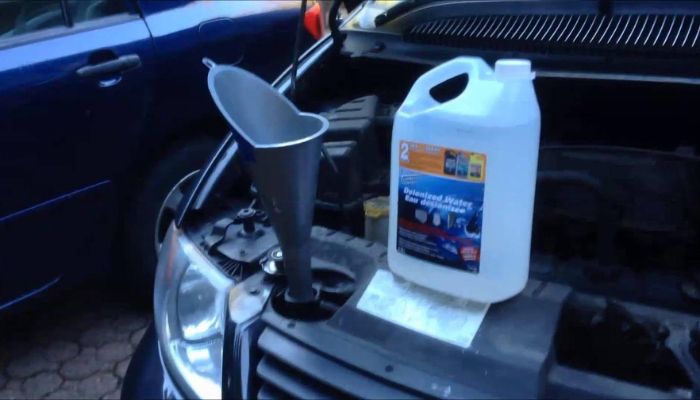
Flushing the coolant system in your Dodge Caravan is an essential maintenance task that helps remove old coolant and contaminants, ensuring your engine runs efficiently. To begin the process, you’ll need to gather some tools: a container to catch old coolant, a wrench for hoses, water, and the correct coolant for refilling.
Start by allowing your engine to cool completely to avoid burns or accidents. Then, locate the radiator drain plug at the bottom of the radiator and place your container beneath it to catch the old coolant.
What are the symptoms of low coolant in a Dodge Caravan?
Engine Overheating:
One of the most noticeable symptoms of low coolant is engine overheating. If your temperature gauge shows a high reading or if a warning light comes on, it may be a sign that the coolant is low.
Steam from Under the Hood:
If you see steam rising from under the hood, it’s an urgent warning. This could mean that the engine is overheating due to insufficient coolant.
Coolant Warning Light:
Most Dodge Caravans have a coolant warning light on the dashboard. If this light turns on, it’s essential to check the coolant level immediately.
Poor Heater Performance:
If the cabin heater isn’t blowing hot air, it might indicate low coolant levels. The heater uses the engine’s coolant to warm the air inside the vehicle.
Gurgling Noises:
If you hear strange gurgling or bubbling sounds from the engine area, this might be a sign that coolant is low, causing air pockets in the cooling system.
Can I use coolant from a different vehicle model – Protect Your Engine!
While it may be tempting to use coolant from a different vehicle model, it is crucial to use a coolant that meets the specifications required for your Dodge Caravan. Different vehicles might have different coolant requirements due to various engine materials and designs.
Using an incompatible coolant can lead to chemical reactions that may create sludge and diminish the effectiveness of the coolant. This can cause overheating, corrosion of the cooling system, or engine damage.
Is it necessary to use OEM coolant for my Dodge Caravan?
Using OEM (Original Equipment Manufacturer) coolant for your Dodge Caravan is generally a safer option, as these products are specifically designed for your vehicle’s engine and cooling system.
OEM coolants meet the exact specifications set by the manufacturer, ensuring optimal performance and protection against various engine issues, such as overheating and corrosion. While there are many aftermarket coolant brands available that may also meet the required specifications.
How do I know if my coolant needs changing – Act Before It’s Too Late!
Recognizing when your coolant needs changing is vital for maintaining your Dodge Caravan’s performance and engine longevity. A few signs indicate that it might be time for a coolant change. Firstly, observe the color of the coolant. Healthy coolant typically has a bright color (green, orange, or yellow).
If you notice it turning dark, brown, or rusty, this indicates contamination or breakdown of the coolant’s protective properties. Additionally, if you detect any unusual odors, such as a burnt smell, this is another clear indicator that the coolant may need replacement.
What should I do if my coolant is leaking – Prevent Engine Damage!
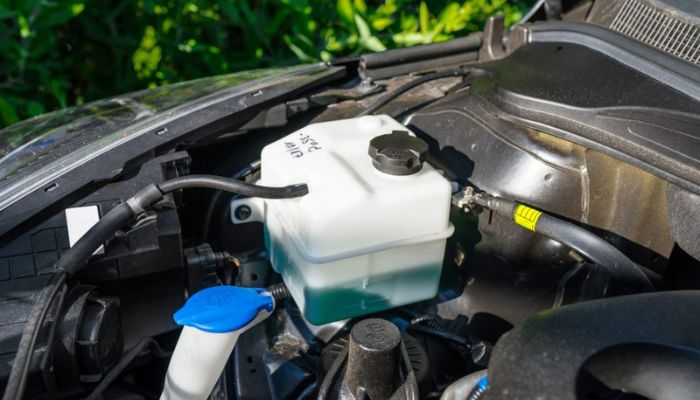
If you notice coolant leaking from your Dodge Caravan, it’s essential to take immediate action, as coolant is vital for keeping your engine cool and preventing overheating. The initial step is to identify the origin of the leak.
Common areas to check include hoses, the radiator, the water pump, and the coolant reservoir. If you see coolant pooling under your vehicle or a visible crack in any components, you may need to replace the damaged part.
FAQs:
Can I use a coolant additive in my Dodge Caravan?
Using a coolant additive in your Dodge Caravan can be beneficial, provided that it’s the right type of product intended for your cooling system. Coolant additives are formulated to enhance the performance of your existing coolant.
What temperature should my Dodge Caravan’s coolant be?
The ideal coolant temperature in your Dodge Caravan usually falls within the range of 190°F to 220°F (88°C to 104°C) during normal driving conditions. This temperature helps maintain optimal engine performance, ensuring it runs efficiently and smoothly.
How does coolant affect engine performance?
Coolant plays a critical role in your Dodge Caravan’s overall engine performance. Its primary function is to regulate the engine’s temperature, preventing it from overheating while also ensuring it operates efficiently, even during extreme weather conditions.
Can I add coolant to a hot engine?
It is not advisable to add coolant to a hot engine, as doing so can lead to serious burns, injuries, or damage to your vehicle. When the engine is hot, the coolant and steam are under pressure, which can cause spillage and result in dangerous conditions.
Does the Dodge Caravan require specific coolant colors?
Although coolant color may vary across different manufacturers, what matters most is the chemical composition and whether it meets the specific specifications required for your Dodge Caravan.
In The End:
In conclusion, keeping an eye on the coolant level in your Dodge Caravan is important for your vehicle’s health. Low coolant can lead to serious problems like overheating and poor engine performance. Regular checks can help you spot issues early, like leaks or warning signs.
